This article was medically reviewed by Erik Kramer, DO, MPH and by wikiHow staff writer, Jessica Gibson. Dr. Erik Kramer is a Board-Certified Primary Care Physician at the University of Colorado. With over 15 years of experience, his clinical interests include obesity and weight management, diabetes care, and preventive care, as well as embracing a holistic approach to primary care. He received his Doctorate in Osteopathic Medicine (D.O.) from the Touro University Nevada College of Osteopathic Medicine and completed his residency at Central Maine Medical Center. Dr. Kramer is a Diplomate of the American Board of Obesity Medicine.
There are 14 references cited in this article, which can be found at the bottom of the page.
This article has been viewed 36,325 times.
Acetylcholine is one of the most important neurotransmitters in your brain and it's responsible for signaling muscle movement. If you're trying to make more acetylcholine, you have to increase your choline levels. While your liver makes choline, it doesn't make enough to meet your daily needs so it's important to get choline in your diet. You can get this essential nutrient from a variety of foods and supplements. Fortunately, including more choline in your diet or supplementing will increase your acetylcholine levels.
Steps
Eating Choline-Rich Foods
-
1Include eggs and animal products to get choline in your diet. Egg yolks are one of the most concentrated sources of choline, so cook up an omelet or scrambled eggs to increase your acetylcholine levels. Milk, yogurt, lean meats, and these foods are also high in choline:[1]
- Beef or chicken liver
- Lean ground beef
- Lean cuts of pork
- Chicken breast
-
2Eat choline-rich seafood at least once a week. Lots of supplements contain choline from seafood sources, but you can easily eat seafood to get the same benefits. Add cod, salmon, and tilapia to increase your choline levels.[2]
- You can also get choline from canned shrimp and tuna.
Advertisement -
3Snack on nuts or add legumes to your meals. Get more choline the next time you reach for a healthy snack or vegetarian meal. Try to eat more nuts, such as peanuts, almonds, and pistachios. These legumes and common beans are high in choline and acetylcholine:[3]
- Soy products: soybeans, tofu, soy milk
- Kidney beans
- Green beans
- Peas
- Mung beans
-
4Try to eat a variety of vegetables every day. Cruciferous vegetables, such as broccoli, cauliflower, and radishes, along with nettles, squash, and eggplant are great sources of choline and acetylcholine.[4]
- Aim for 1/2 cup (60 g) of cooked vegetables or 1 cup (225 g) of raw, leafy veggies.
-
5Get choline by eating wild strawberries, orange juice, and figs. Although fruits don't contain as much choline as vegetables or dairy products, some fruits have choline. In addition to wild strawberries, orange juice, and dried figs, you can eat clementines and apricots.[5]
- Citrus fruits, such as limes, grapefruits, and naval oranges, all contain low levels of choline.
Did You Know? The bitter orange that's found in marmalade is a great source of acetylcholine. Bitter orange is often used as a flavor extract.
-
6Mix wheat germ or brewer's yeast into smoothies or yogurt. Purchase wheat germ or brewer's yeast from your grocery store's bulk bins or a local health food store. Stir a spoonful of wheat germ or brewer's yeast into yogurt, smoothies, or fruit sauces to increase your choline and acetylcholine levels.[6]
- You can also add wheat germ or brewer's yeast to baked goods. Try stirring it into bran muffins or fruit bread, for instance.
Taking Supplements
-
1Take a choline supplement to help your brain create more acetylcholine. In order to make more acetylcholine, your body needs choline. If you're concerned that you're not getting enough choline in your diet, talk with your doctor about taking a phosphatidylcholine (PC) supplement every day.[7]
- Most choline supplements contain around 10 to 250 mg of choline and assorted B-complex vitamins.
Did You Know? The recommended daily intake for choline is 425 mg a day for women or 550 mg a day for men.
-
2Add a daily probiotic to produce more acetylcholine. Shop for a high-quality lactobacillus probiotic or ask your doctor to recommend one. Studies show that lactobacillus species can increase acetylcholine production in your brain.[8]
- Since supplements aren't regulated by the Food and Drug Administration, buy a supplement from a reputable company and choose one that doesn't contain a lot of fillers.[9]
-
3Include an acetyl-L-carnitine supplement. Research shows that an acetyl-L-carnitine supplement can help your brain release acetylcholine so buy a high-quality supplement after you talk with your doctor. It's important to take acetyl-L-carnitine because your body absorbs this better than L-carnitine and it's more likely to make it into your brain.[10]
- Although studies show this is a safe supplement to take for increasing acetylcholine, the Food and Drug Administration hasn't set daily intake recommendations because it doesn't feel that acetyl-L-carnitine is an essential nutrient.
-
4Avoid taking dimethylaminoethanol (DMAE) supplement. If you've been looking for supplements that claim to raise your choline levels, you might have seen DMAE supplements mentioned. Unfortunately, more research is needed to determine how DMAE interacts with acetylcholine.[11]
- Most studies on DMAE were done almost 50 years ago and give conflicting evidence about whether or not it increases choline levels.
Maintaining Your Acetylcholine Levels
-
1Talk with your doctor about medications that inhibit acetylcholine. Some medications can inhibit or block the brain from activating acetylcholine. These include medications for depression, urinary incontinence, and insomnia. Ask your doctor if any of the medications you're taking are anticholinergic.[12]
- You and your doctor might find a way to cut back on anticholinergic medication or reduce your dose.
Tip: Tell your doctor about any over-the-counter (OTC) medications you're taking. Some combinations of prescription and OTC medications can block acetylcholine.
-
2Avoid taking antihistamines. If you're currently taking antihistamines for allergies or acid reflux, ask your doctor about trying different medications or adjusting your dose. Some antihistamines have been shown to inhibit or prevent acetylcholine from activating in the brain.[13]
- Ask your doctor if new research has been done on the effects of antihistamines on acetylcholine levels. Not much is known about acetylcholine, so there are a lot of ongoing scientific studies.
-
3Reduce your stress levels to prevent depleting your ACh levels. Although human studies are needed, researchers believe that stressful events can temporarily increase the production and release of acetylcholine. Unfortunately, if you're constantly stressed, this can deplete your acetylcholine over time. Learn a few different relaxation techniques to manage stress.[14] You could:[15]
- Meditate
- Practice deep breathing
- Do Yoga
- Listen to calming music
Warnings
- Choline is an essential nutrient because it transports fat out of your liver. If you have a choline deficiency, fat might build up in your liver and cause non-alcoholic fatty liver disease (NAFLD). Your body doesn't make enough choline to meet your needs, so you need to include it in your diet.⧼thumbs_response⧽
References
- ↑ https://ods.od.nih.gov/factsheets/Choline-HealthProfessional/
- ↑ https://www.myfooddata.com/articles/high-choline-foods.php
- ↑ https://www.myfooddata.com/articles/high-choline-foods.php
- ↑ https://www.ncbi.nlm.nih.gov/pmc/articles/PMC5986471/#B12-nutrients-10-00591
- ↑ https://www.ars.usda.gov/ARSUserFiles/80400525/Data/Choline/Choln02.pdf
- ↑ https://www.ncbi.nlm.nih.gov/pmc/articles/PMC2782876/
- ↑ https://ods.od.nih.gov/factsheets/Choline-HealthProfessional/
- ↑ https://www.ncbi.nlm.nih.gov/pmc/articles/PMC5986471/#B12-nutrients-10-00591
- ↑ https://www.fda.gov/consumers/consumer-updates/dietary-supplements
- ↑ https://europepmc.org/articles/pmc5621476
- ↑ https://ntp.niehs.nih.gov/ntp/htdocs/chem_background/exsumpdf/dmae_update_110002_508.pdf
- ↑ https://www.kpwashingtonresearch.org/news-and-events/blog/2015/06/what-if-youre-taking-anticholinergic-medication
- ↑ https://www.ncbi.nlm.nih.gov/pubmed/25445036
- ↑ https://www.sciencemag.org/news/1998/06/stress-may-keep-neurons-down
- ↑ https://www.helpguide.org/articles/stress/stress-management.htm
- ↑ https://www.ncbi.nlm.nih.gov/pubmed/1483754
- ↑ https://ods.od.nih.gov/factsheets/Choline-HealthProfessional/
- ↑ https://www.ncbi.nlm.nih.gov/pmc/articles/PMC4787279/

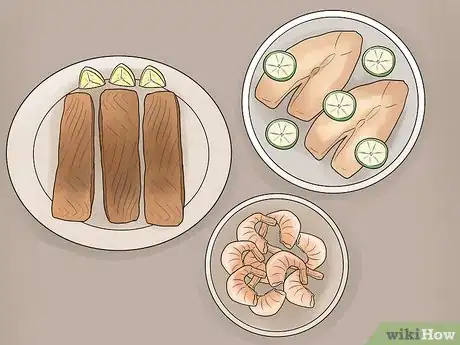



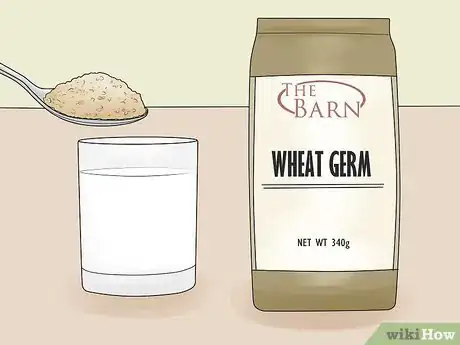
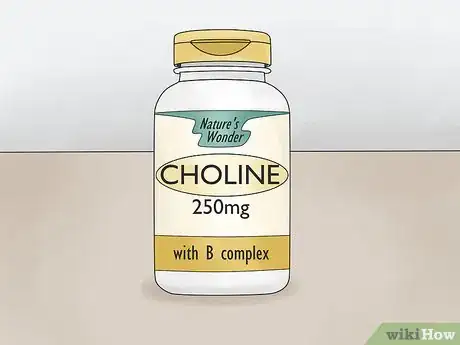
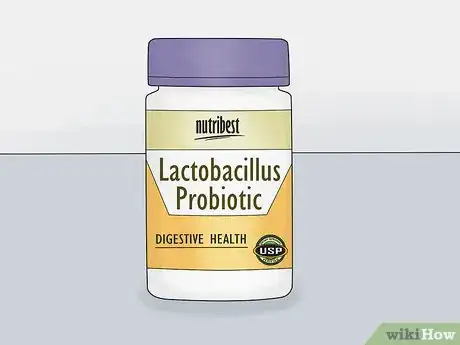
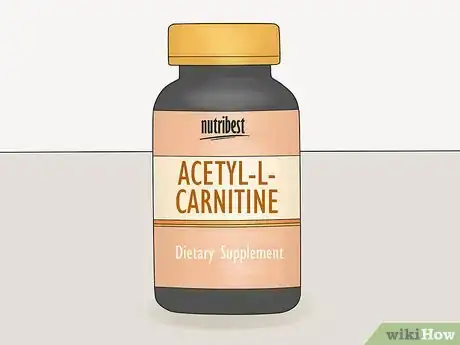

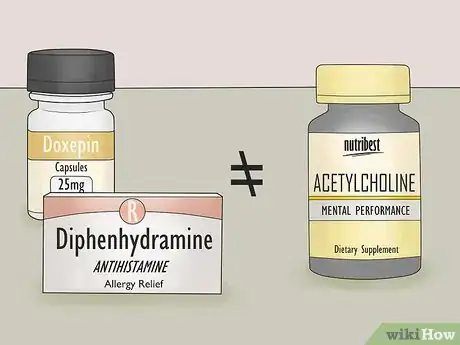











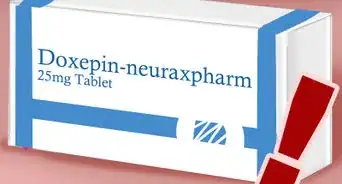












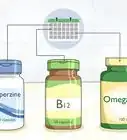






































Medical Disclaimer
The content of this article is not intended to be a substitute for professional medical advice, examination, diagnosis, or treatment. You should always contact your doctor or other qualified healthcare professional before starting, changing, or stopping any kind of health treatment.
Read More...